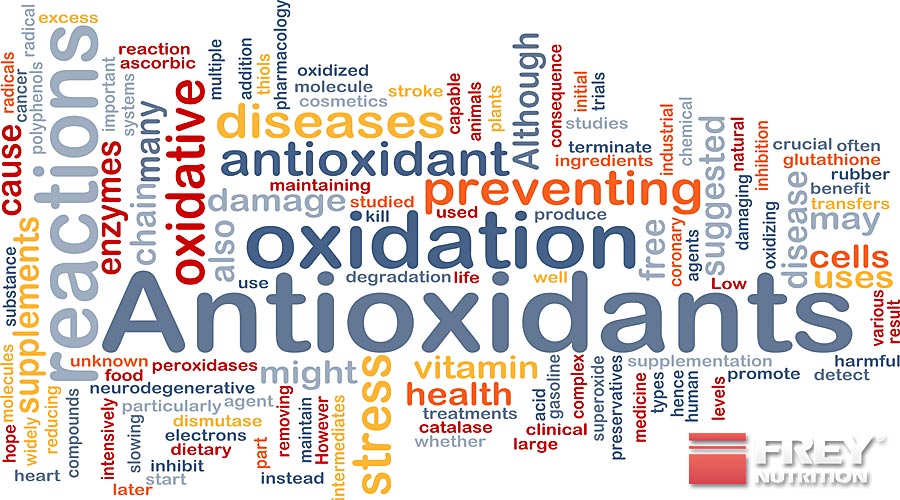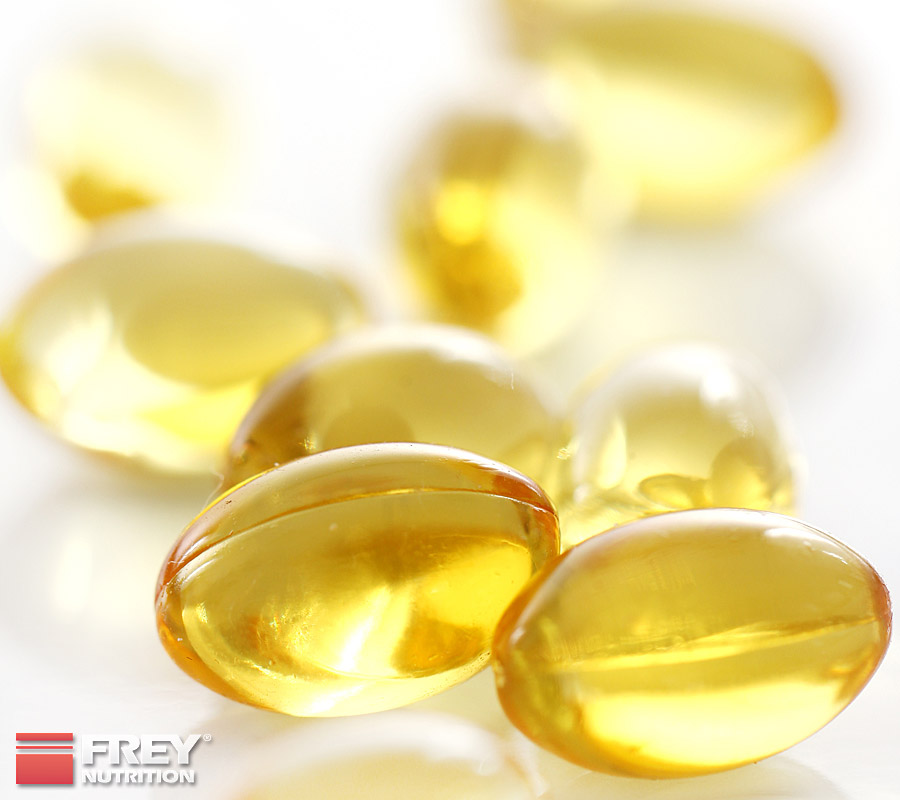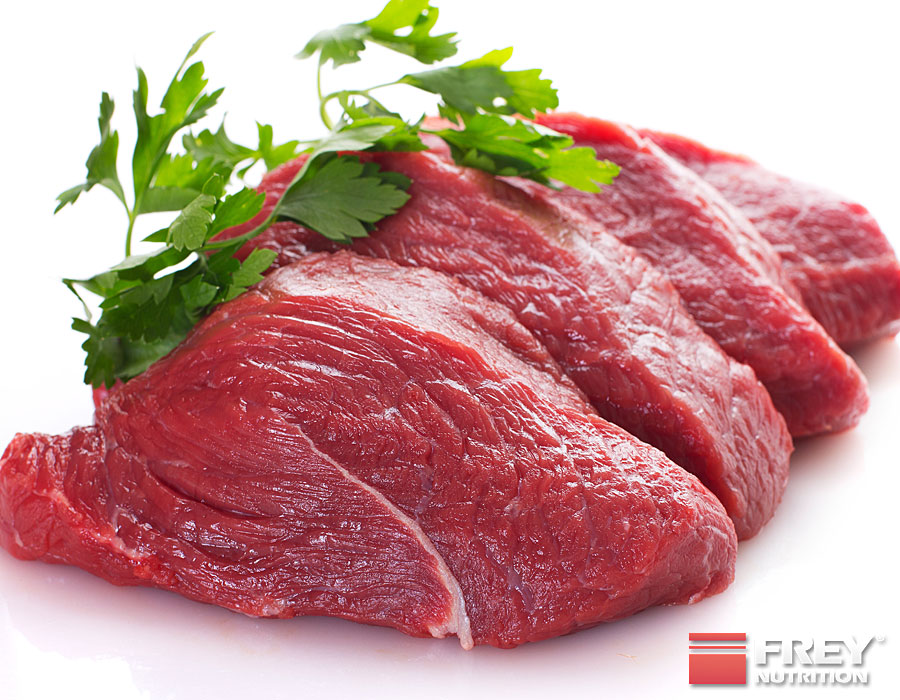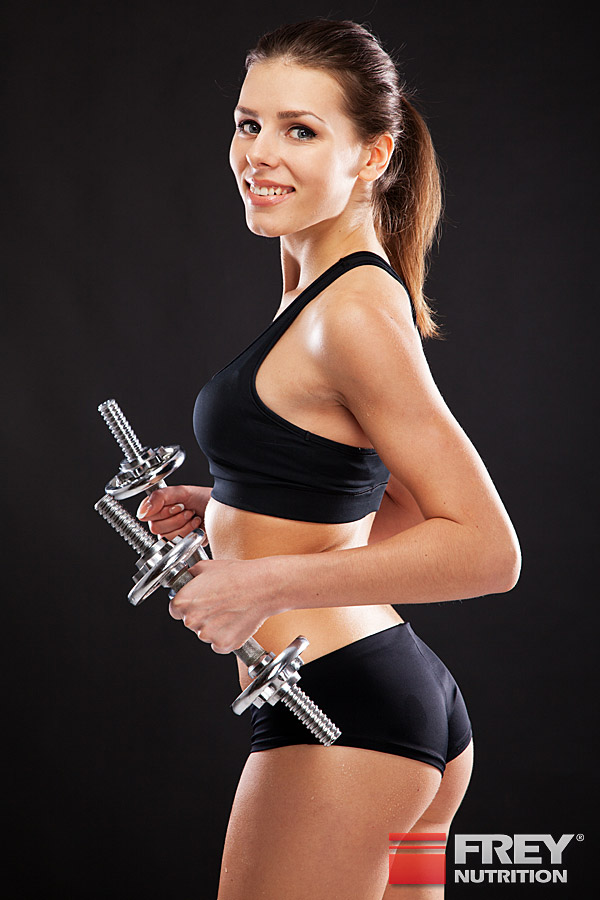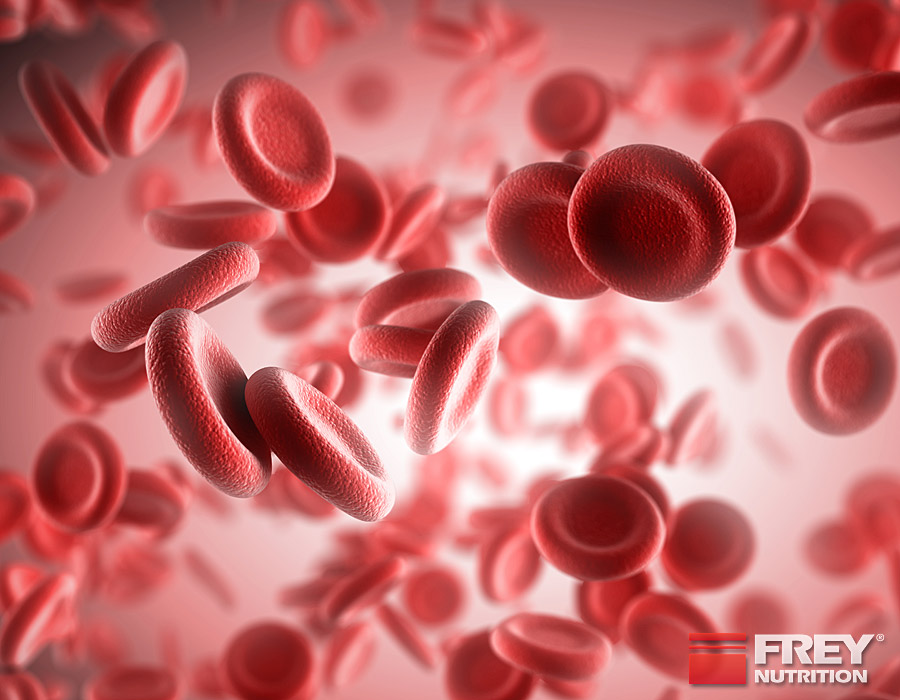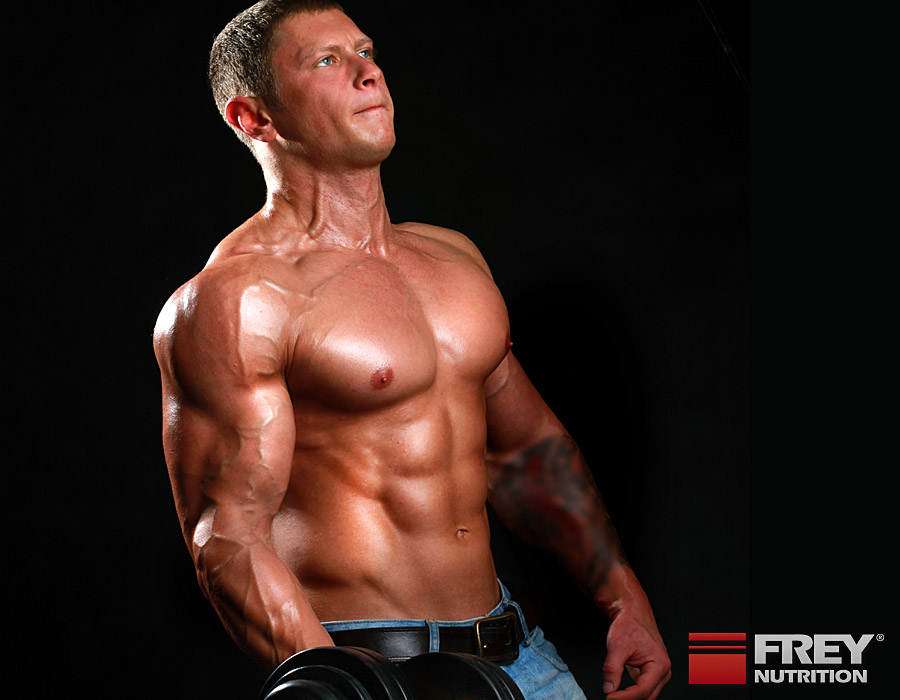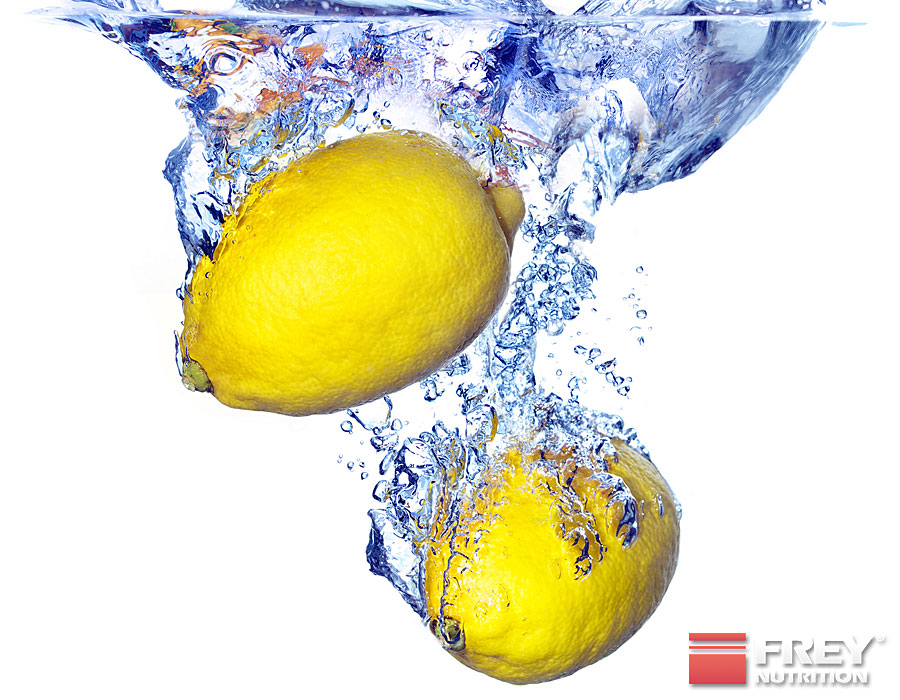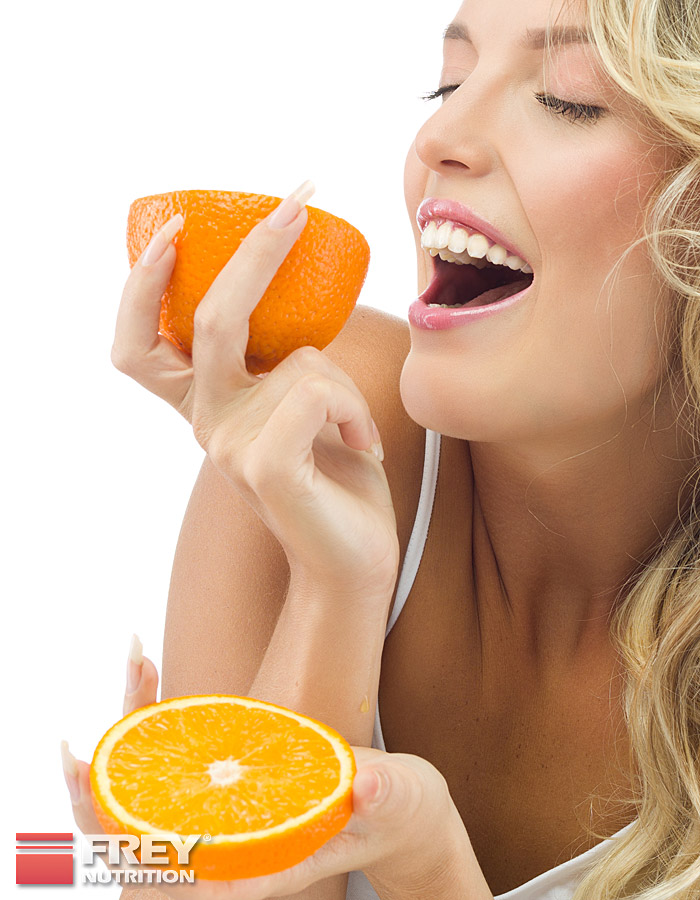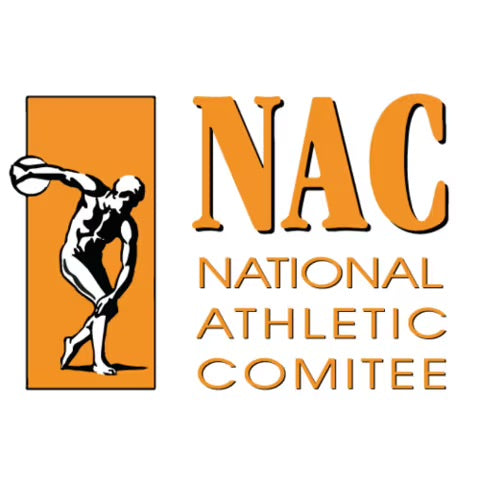VITAMINS | ESSENTIAL AND ESSENTIAL
Vitamins are vital components of food. They do not provide energy, but are essential for many metabolic processes. As organic substances, they are needed by the organism for certain vital functions and are therefore so important because the body can only produce insufficient amounts itself and is dependent on the supply through food.
Depending on their solubility, a distinction is made between fat-soluble vitamins (A, D, E, K) and water-soluble vitamins (B1, B2, B6, B12, folic acid, pantothenic acid, niacin, biotin, vitamin C). Since vitamins are needed for all metabolic processes in a living organism, they must be consumed regularly and in sufficient quantities through food. The individual's different vitamin requirements must be taken into account.
The vitamin requirement depends on the individual and their physical and mental condition (e.g. illness, stress, etc.). The information for an appropriate vitamin intake must take into account the age, gender, performance level, state of health and nutritional composition of each individual. People who are physically active have an increased requirement and must pay particular attention to ensuring they have an adequate vitamin intake. Deficiency symptoms initially result in a decline in general physical performance.
ANTIOXIDANTS FOR HEALTH AND PERFORMANCE
Another effect of certain vitamins that should not be underestimated is their antioxidant properties. They act as protective factors against the damaging effects of free radicals on lipids, on the oxidation of LDL cholesterol, cell membranes, proteins, enzymes and genetic material.
Due to the increased oxygen uptake during sporting activities and endurance exercise, both the concentration of free radicals and their damaging effects increase significantly.
ALPHA-LIPOIC ACID HAS STRONG ANTIOXIDATIVE PROPERTIES AND CAN EVEN "RECYCLE" VITAMIN C.
Vitamins can reduce or block this process in a natural way, thereby contributing to maintaining health and performance. Vitamins with antioxidant effects include vitamins E and C, as well as beta-carotene (provitamin A), as well as vitamins B1, B6 and pantothenic acid.
Another vitamin-like substance that has strong antioxidant properties is ALPHA-LIPOIC ACID (also called ALA). As an important coenzyme of metabolism, ALA has the greatest potential to eliminate free radicals according to the latest scientific findings. Unlike vitamins C or E, which work either on a water-soluble or fat-soluble level, alpha-lipoic acid works equally on both levels and can strengthen and even "recycle" the effect of other antioxidants. Certain trace elements (such as selenium, zinc, copper and manganese, see also: NUTRIENT: TRACE ELEMENTS ) also have antioxidant effects and, along with vitamins, contribute to maintaining the health of the body’s cells.
The vitamins from the B complex (B1, B2, B6, B12) are particularly important for athletes and strength athletes. Due to the increased intake of protein-rich food, these vitamins are responsible for the efficient utilization of proteins, meaning that a larger amount of protein can be absorbed and utilized by the organism. With a normal mixed diet, the human body is dependent on the external supply of vitamins and trace elements, not least in order to maintain a regulated metabolic process.
This need can be partially met by fresh fruit and vegetables, but this requires the consumption of large quantities of these foods. Athletes have a significantly higher need depending on the intensity of their activity, which is why it is simply impossible to get the required amounts from food, i.e. fruit or vegetables. Well-informed and ambitious athletes therefore cover their vitamin requirements by taking a high-quality multivitamin supplement. This is particularly useful in phases of intense physical exertion, such as in reduction diets, in which food intake is sometimes severely restricted and therefore fewer vitamins and trace elements are absorbed anyway.
OCCURRENCE | IMPORTANCE | NEED
| Fat-soluble | Happen | Meaning | Requirement* |
| Vitamin A (Retinol) |
liver Dairy products egg yolk |
- involved in the visual process - important for cell growth - Regeneration of skin and mucous membranes |
800mcg |
| carotene (Provitamin A) |
Carrots paprika tomatoes |
- see above - also has antioxidant properties |
5mg |
| Vitamin D (Calciferol) |
liver Cod liver oil egg yolk |
- required for calcium absorption - involved in bone formation |
5mcg |
| Vitamin E (Tocopherol) |
Wheat germ Eggs vegetable oils |
- prevents the oxidation of unsaturated fatty acids (antioxidant) - strengthens the immune system - important for cell renewal |
12mg |
| Vitamin K | egg yolk liver Kale |
- involved in blood clotting - involved in bone formation |
75mcg |
| Water soluble | Happen | Meaning | Requirement* |
| Vitamin B1 (Thiamine) |
Yeast oatmeal legumes |
- required for carbohydrate metabolism - important for thyroid function and nerves - is an antioxidant |
1.1mg |
| Vitamin B2 (Riboflavin) |
milk Meat Grain |
- Component of enzymes of the respiratory chain - promotes concentration |
1.4mg |
| Vitamin B6 (Pyridoxine) |
Grain Meat liver |
- Component of various enzyme systems in protein metabolism - important for protein utilization - is an antioxidant |
1.4mg |
| Vitamin B12 (Cobalamin) |
in all animal Food |
- involved in the formation of red blood cells - important for nerve function |
2.5mcg |
| Folic acid | Wheat germ liver Yeast |
- involved in amino acid metabolism - important for healthy skin |
200mcg |
| Pantothenic acid | liver Vegetables Wheat germ |
- Component of coenzyme A - promotes wound healing and the immune system - is an antioxidant |
6mg |
| niacin | Yeast Meat potatoes |
- Component of enzyme systems - important for the utilization of fats, proteins and carbohydrates - important for skin and nails |
16mg |
| Biotin | Soy flour liver Yeast |
- Component of enzyme systems - protects against skin inflammation - important for skin, hair and nails |
50mcg |
| vitamin C (ascorbic acid) |
Citrus fruits Vegetables potatoes |
- involved in the formation of connective tissue - protects against infections - is an antioxidant |
80mg |
* Recommended intake according to RDA (= Recommended Dietary Allowances )
Annotation: The recommended intake according to RDA is aimed at non-athletes and does not take additional sporting activities into account. Depending on the intensity of the sport and the phase (diet or build-up phase), athletes may have a significantly increased need.
RECOMMENDED DIETARY ALLOWANCES
In 1990, the Recommended Dietary Allowances were made binding for the EU and summarized in Directive 90/496/EEC. In 2008, the directive was updated with new RDAs, which came into force in all member states at the end of October 2009. The RDA recommendations only take into account average people who do not do any physically demanding work or exercise. The recommendations also do not apply to people who are ill or recovering from an illness. Furthermore, the RDA does not say anything about any minimum or maximum amounts of vitamin and mineral intake.
VITAMIN A
Vitamin A is important for normal cell division, growth, good vision and a functioning immune system. Carotenoids (beta-carotene) have a strong antioxidant effect. Since vitamin A plays a crucial role in converting light into electrical nerve impulses, it is essential for the visual process. Some vitamin A is used in every visual process. In nature, vitamin A only occurs in animal tissue as retinol. Plant-based foods only contain the precursor of vitamin A, namely beta-carotene. This also has a strong antioxidant effect, intercepts free radicals and can thus reduce the risk of cancer and protect the skin from UV radiation.
Vitamin A is only found in animal tissues (e.g. liver, sea fish) and products such as milk, eggs and butter. Plants (e.g. carrots, tomatoes, broccoli, spinach, etc.) only contain carotenoids (provitamins), which can be converted into vitamin A in the body when needed.
CAROTENE
The provitamin beta-carotene is the precursor of vitamin A and can be converted by the body into this vitamin, which is particularly important for vision, when required. Compared to its big brother, carotene also has unique antioxidant properties that are important for keeping the body's cells healthy.
VITAMIN D
Vitamin D is necessary for the absorption of calcium and phosphorus and is therefore essential for healthy bones and teeth. It is the only vitamin that the body can produce itself. Although vitamin D is fat-soluble, the body cannot store much of it.
In general, the amount of vitamin D in food is rather low. Only fatty fish such as salmon, herring and mackerel, as well as cod liver oil, cheese and eggs contain larger amounts of the vitamin. Food only supplements the vitamin D intake, the majority is provided by the body's own production.
VITAMIN E
VITAMIN E As an antioxidant, it protects polyunsaturated fatty acids in the cell membranes from oxidation (= destruction). Vitamin E is only produced by plants to eliminate the free radicals that arise in the metabolism, so that vitamin E acts as a protective system against aggressive compounds. Vitamin E stored in the cell membrane contributes to cell health by preventing the destruction of polyunsaturated fatty acids.
VITAMIN E IS ONE OF THE MOST IMPORTANT ANTIOXIDANTS.
Oxidative processes triggered by free radicals are associated with the development of cancer, arteriosclerosis (hardening of the arteries) and Alzheimer's. They destroy cells, lead to premature aging and are blamed for many diseases. People who are particularly active in sports are particularly dependent on an adequate supply of this vitamin, as oxygen consumption increases sharply during intensive exercise and the concentration of free radicals increases. The optimal dosage for athletes is around 400 mg of vitamin E daily.
Although vitamin E is only synthesized by plants, it is present as a fat-soluble vitamin in all cell membranes, so that animal fats also contribute to meeting the requirement. However, the highest vitamin E content is found in vegetable oils, especially wheat germ, corn germ and sunflower oil. SALMON OIL CAPSULES , especially those that are of high quality, provide not only essential omega-3 fatty acids but also natural vitamin E and also contribute to its supply.
VITAMIN K
Vitamin K is important for the formation of proteins and for normal blood clotting. In healthy people and with a mixed diet, a vitamin K deficiency is unlikely. However, this mainly occurs when the body cannot properly utilize fats due to an illness.
Green leafy vegetables and lettuce are high in vitamin K. Whole grain products, meat, milk, eggs, fruits and other vegetables also contain large amounts of this vitamin.
VITAMIN B1
VITAMIN B1 Thiamine is a water-soluble vitamin and performs important control functions in the body to convert carbohydrates, fats and alcohol into energy.
In addition, it is important for the function of nerve tissue and the heart muscle. Due to its central function in energy metabolism, the need for thiamine is closely linked to the calorie intake, ie the more calories are consumed, the more thiamine the food must contain at the same time.
Since competitive sports generally require a higher energy requirement, vitamin B1 requirements should also be adjusted. Thiamine prevents the build-up of toxic metabolic byproducts that can damage the heart and nervous system. Due to its importance for the utilization of daily energy intake, strength athletes in particular, with their sometimes extreme "calorie fattening," should ensure an adequate supply of vitamin B1.
Pork, liver, whole grain products and legumes contain plenty of vitamin B1.
VITAMIN B2
Vitamin B2 supports the conversion of proteins, fats and carbohydrates into energy. It also supports important tasks of vitamins B6 and niacin. Since the body can only store a very limited amount of vitamin B2, regular intake is important.
Fish, muscle meat, dairy products, eggs and whole grain products contain particularly high levels of vitamin B2.
VITAMIN B6
VITAMIN B6 (Pyridoxine) is required for a variety of metabolic reactions, most of which have to do with the synthesis and breakdown of amino acids. It is also necessary for the nervous system, the immune system and the formation of the red blood pigment hemoglobin.
B VITAMINS SHOULD BE TAKEN TOGETHER AS A B COMPLEX FOR OPTIMAL ABSORPTION.
The more protein the diet contains, the more vitamin B6 the body needs to utilize and absorb protein. In conclusion, protein utilization is more efficient when enough vitamin B6 is available through adequate intake. For strength athletes, an additional supply of vitamin B6 is therefore essential, especially since the additional amounts required to utilize dietary protein cannot be adequately absorbed through normal food.
In order to ensure adequate intake, experienced athletes use a high-dose vitamin B complex preparation that contains 100% of the recommended daily amount of B vitamins. Vitamin B6 taken in excess of requirements is excreted in the urine without side effects, as are all other vitamins in the B complex, as they are water-soluble and, unlike fat-soluble vitamins, are not stored in the body.
Foods rich in pyridoxine include chicken, pork, fish, bananas and whole grain products.
VITAMIN B12
Vitamin B12 is needed to form red blood cells and other body cells. It is an essential component of the nucleic acid (DNA) of the cell nucleus and is used to utilize iron and produce acetylcholine, an important neurotransmitter. Vitamin B12 plays a key role in activating folic acid from its storage and transport form into its biologically active form.
VITAMIN B12 is the only water-soluble vitamin that can be stored long-term in the liver and muscles. In the past, vitamin B12 had a reputation as a natural ergogenic substance that increased the general performance of the organism and was able to stimulate anabolic processes in the muscles after heavy weight training. Today, however, we know that several meat-containing meals per week adequately cover the requirement, which is why no additional anabolic effects are to be expected from an additional vitamin B12 intake. Only in the case of a deficiency, which is usually caused by a poor utilization of the vitamin from food, or by a strict vegetarian diet, can additional vitamin B12 doses have a performance-enhancing effect. However, this is only possible if the vitamin B12 is injected intramuscularly, since oral availability is very low and is not sufficient for a noticeable increase in performance.
Vitamin B12 is only found in animal foods such as liver, muscle meat, fish, eggs, cheese and milk. Plant foods are almost free of vitamin B12. This is why it is assumed that a positive effect of targeted intake is only possible, if at all, in vegetarians or vegans.
FOLIC ACID
Folic acid is a water-soluble vitamin from the vitamin B group. Folic acid is a very important vitamin that is essential for cell division and the formation of new cells.
Together with vitamin B12, folic acid is essential for the formation of red and white blood cells and for the production of platelets, which are necessary for blood clotting and thus for "wound closure". Folic acid has important functions for the synthesis of nucleic acids, which contain the basic information of the genetic material (DNA). Folic acid should always be taken in conjunction with the other vitamins of the B complex, as taking them together increases their bioavailability.
Liver, green vegetables, beans, milk and whole grains contain a lot of folic acid.
PANTOTHENIC ACID
Like folic acid, pantothenic acid is a water-soluble vitamin from the B vitamin group. It is needed to build up coenzyme A, which plays a central role in metabolism, and is involved in the build-up and breakdown of carbohydrates, fats, amino acids, as well as in the synthesis of cholesterol and the formation of steroid hormones. The same applies to pantothenic acid as to folic acid; additional intake should only take place in the presence of the other vitamins of the B complex.
Pantothenic acid is found in virtually all foods, with higher concentrations found in meat, liver, fish and legumes.
NIACIN
Niacin is another vitamin from the B complex that is involved in the energetic utilization of carbohydrates, proteins and fats. Niacin is also needed for the formation of chemical messengers in the brain. It ensures healthy skin and a functioning digestive system.
Niacin is found in all animal products such as meat, fish and poultry. Plant products only contain small amounts of niacin, which are also difficult to digest.
BIOTIN
Biotin, which also belongs to the B complex, activates enzyme reactions as a co-factor that are of central importance in metabolism. They are important for the formation of glucose and the synthesis and breakdown of fatty acids and amino acids. Anyone who values clear skin, healthy fingernails and strong hair should pay particular attention to an adequate supply of biotin. Biotin is also partly produced by the bacteria in the intestinal flora, but this contribution to the human biotin supply is considered to be rather small.
Biotin is found in liver and egg yolk, oatmeal and soybeans. But tomatoes, spinach, fish and grains also contribute to the biotin supply.
VITAMIN C
ASCORBIC ACID (Vitamin C) is a water-soluble vitamin. It is important for the production of collagen, which ensures healthy skin, bones, cartilage, teeth and gums and also plays an important role in the healing of wounds and burns. Vitamin C supports the absorption of iron from plant foods, provided it is consumed together with iron-rich foods.
Vitamin C is also involved in detoxification reactions in the liver and, as one of the strongest antioxidants, supports numerous important functions in the human metabolism. As a particularly effective radical scavenger, it is of particular value to athletes and should definitely be included in any sensible supplementation. A sufficient intake of vitamin C through everyday foods is rarely, if ever, achieved, particularly since vitamin C is destroyed and broken down very quickly. The need increases even with the slightest additional physical exertion.
Due to their high nicotine consumption, which promotes the formation of free radicals, smokers have a significantly higher consumption of the vitamin. This means that you either have to stop smoking or get an extra dose of vitamin C, although the first option is clearly the better one. Ascorbic acid is mainly found in plant-based foods, but also in some animal products, since plants and almost all animals can produce vitamin C from glucose (grape sugar).
ACCORDING TO STUDIES, VITAMIN C CAN HELP STRENGTHEN HEALTH AND THE IMMUNE SYSTEM.
There is debate as to whether vitamin C has a positive effect on susceptibility to infectious diseases or whether it can partially inhibit the formation of tumors and the development of arteriosclerosis by intercepting harmful oxygen radicals. The infection-preventing effect of high doses of vitamin C has not yet been sufficiently proven scientifically. However, due to the majority of scientific studies that sufficiently demonstrate the positive effects of the vitamin on the organism, there is a tendency to believe that it can contribute to maintaining health and strengthening the immune system, particularly in times of increased stress and during the winter months.
Furthermore, vitamin C is involved in the production of various hormones that are important for humans, including the release of growth hormones, which contribute significantly to increasing the body's performance.
Fresh fruit and vegetables are the best sources of vitamin C. Blackcurrants, citrus fruits and peppers are particularly rich. Potatoes, spinach and tomatoes are also part of a diet rich in vitamin C. It is difficult to get enough vitamin C due to the large amounts of food that have to be consumed.
In order to meet the increased needs of athletes, it is recommended to take a good vitamin C preparation. Since vitamin C is excreted very quickly from the body due to its water-soluble properties, several doses spread throughout the day are necessary to ensure an even supply. Vitamin C in depot form can help here, as only a single dose per day ensures an even supply of vitamin C.
The combination with grape seed extract (OPC) is very popular and is often used. OPC also has strong antioxidant properties and interacts optimally with vitamin C, it is a sensible and effective symbiosis. Any vitamin C consumed in excess of the requirement is excreted in the urine and has no side effects. The DGE recommends a daily amount of 100 mg of vitamin C for non-athletes. For people who regularly do sports, 400 mg is an optimal daily dosage. In times of intense stress, doses of 3 to 10 g per day are often discussed in science. However, it remains questionable whether such overdoses are even absorbed by the body.




